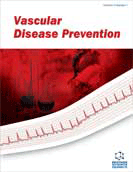Abstract
Cardiopulmonary bypass (CPB) is widely used to maintain systemic perfusion and oxygenation during cardiac surgery. Interventions such as glycogen depletion, which limit myocardial anaerobic glycolysis and the associated proton production, can reduce myocardial ischemic injury. Thus, it follows that inhibition of glycogenolysis could be cardioprotective. Therefore, we assessed glycogen phosphorylase (GP) and creatine kinase-MB (CK-MB) activity in 120 patients during CPB. Arterial blood samples were collected at different stages of CPB. CK MB and GP activity were significantly increased at all the stages of CPB (P < 0.001). Maximum Peak of GP activity was measured at rewarming (at 35°C) (T3) during surgery as compared to that of CK MB 24 h after surgery. In conclusion, GP activity was increased during CPB. The early GP release is a marker of ischemic myocardial damage. This may be part of the response to the increased reactive oxygen species produced during reperfusion.
Keywords: Cardiopulmonary bypass, glycogen phosphorylase, creatine kinase


